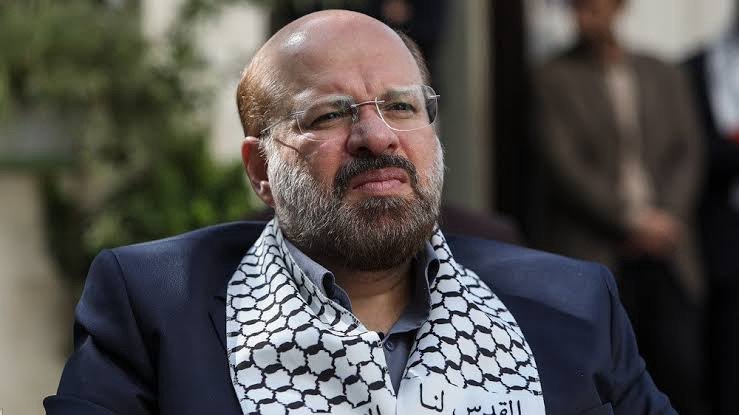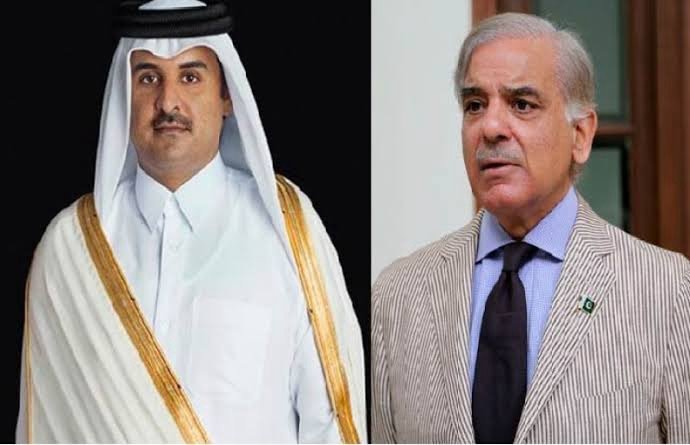Hamas spokesperson Dr Khaled Qaddoumi has accused Israel of carrying out a “cowardly and criminal assault” on the movement’s political office in Doha with direct backing from the United States. He said the failed strike was part of a deliberate pattern of US-Israel coordination aimed at sabotaging peace efforts and eliminating Hamas leaders.
According to Qaddoumi, the attack came as senior Hamas leaders were meeting in Qatar to discuss an American proposal. He alleged that Washington repeatedly puts forward negotiation offers, only for Israel “in complete harmony with the US administration” to attempt assassinations against resistance leaders once talks begin.
“Every time they claim to want negotiations and put forward a proposal, the Zionist enemy, in full coordination with the US administration, launches a planned strike against our leaders,” Qaddoumi said. He pointed to Israeli media reports, including Yedioth Ahronoth, Israel Hayom and Channel 13, which confirmed details of the strike.
Qaddoumi stressed that the attack failed, with Hamas leadership surviving unharmed. However, several members and security guards were killed. Offering condolences to their families, he described them as martyrs who had attained divine rank, adding: “Indeed, to Allah we belong, and to Him we shall return.”
In a separate official statement, Hamas described the assassination attempt in Doha as a heinous crime, an act of open aggression, and a flagrant violation of international laws and norms. The group said the strike was also an attack on the sovereignty of the State of Qatar, which, alongside Egypt, has been engaged in mediation efforts for a ceasefire and prisoner exchange. Hamas accused Israel of deliberately sabotaging any possibility of an agreement.
The statement confirmed that the negotiating delegation remained safe but identified those martyred as Jihad Labad (Abu Bilal), Director of Dr Khalil al-Hayya’s office; Hummam al-Hayya (Abu Yahya), son of Dr Khalil al-Hayya; Abdullah Abdul Wahid (Abu Khalil), a guard; Mu’min Hassouneh (Abu Omar), a guard; and Ahmad Mamlouk (Abu Malik), a guard. Hamas also paid tribute to Arif Badr Saad Muhammad Al-Humaidi, a member of Qatar’s internal security force “Lekhwiya,” who was killed in the attack. The movement prayed for Allah’s mercy on all the martyrs.
Linking the assault to discussions on the recent proposal by US President Donald Trump, Hamas said it was undeniable proof that Israeli Prime Minister Benjamin Netanyahu had no interest in an agreement and was intent on undermining international mediation. The statement placed joint responsibility on the US administration, accusing Washington of consistently supporting what it called the occupier’s crimes.
“This crime once again proves that the Zionist occupation is a grave danger to the region and the entire world,” the statement said, accusing Netanyahu of pursuing forced displacement, genocide, massacres, starvation, and exile. Hamas urged the United Nations, governments, and people of conscience worldwide to condemn the attack on Qatar and pressure Israel to halt its assault on Palestinians and recognise their rights to freedom and self-determination.
The movement reaffirmed that the attempted assassination would not alter its demands: an immediate end to aggression against Palestinians, complete withdrawal of Israeli forces from Gaza, a genuine prisoner exchange, and urgent relief and reconstruction. It vowed to continue its struggle until the removal of the occupation and the establishment of an independent Palestinian state with Jerusalem as its capital.
He condemned the strike on Doha as especially dangerous, saying Qatar has long played a vital role in mediating between Hamas and Israel. “While our leadership was engaged in discussions over the American initiative, the occupation forces, under US sponsorship, targeted our office in Doha, a country that plays one of the most crucial mediating roles,” he noted.
The Hamas spokesperson held the international community, as well as Arab and Islamic nations, responsible for failing to act decisively against Israel. “We hold the global community and the Arab and Islamic Ummah responsible for failing to act with resolve against this aggression,” he said. “The Zionist enemy has no genuine interest in reconciliation, and the conduct of the American administration only encourages the ongoing genocide in Gaza.”
In his message to Palestinians, particularly those in Gaza, Qaddoumi vowed that Hamas will continue its struggle. “We have no option but to defend ourselves. We swear by Allah to our people that our struggle will continue, we shall either achieve victory or attain the high rank of martyrdom,” he declared.
The Hamas statement and Qaddoumi’s remarks echo a long history of Israeli targeted killings of Palestinian leaders, often at moments of political negotiation. From Sheikh Ahmed Yassin’s assassination in 2004 to repeated strikes on commanders during ceasefire talks, Hamas has accused Israel of systematically undermining dialogue. By directly accusing Washington of complicity, the group suggested the US benefits from prolonging the conflict rather than resolving it.
The Doha strike also raises concerns for Qatar’s mediation role. For years, the Gulf state has hosted indirect talks on ceasefires, prisoner exchanges, and humanitarian pauses. Analysts warn that an Israeli strike in Doha risks undermining this channel, complicating future diplomacy.
The allegation of US-Israel coordination comes amid escalating tensions in the Middle East. Israel has expanded operations in Gaza while targeting Hamas and Hezbollah figures in Lebanon and Syria. Strikes outside Palestinian territories suggest an expanding battlefield that could inflame the wider region.
By portraying the failed strike as proof of resilience, Hamas is seeking to project both survival and defiance. Qaddoumi’s framing, mourning martyrs while pledging ongoing resistance, aims to sustain morale in Gaza and reaffirm the movement’s position as the vanguard of Palestinian resistance.
The failed attack in Doha underlines the fragility of ongoing mediation efforts and highlights how military actions intersect with diplomacy in the Gaza war. For Hamas, the message remains clear: it will continue resisting, presenting itself as both a political actor and a resistance movement, determined to seek either victory or martyrdom.


